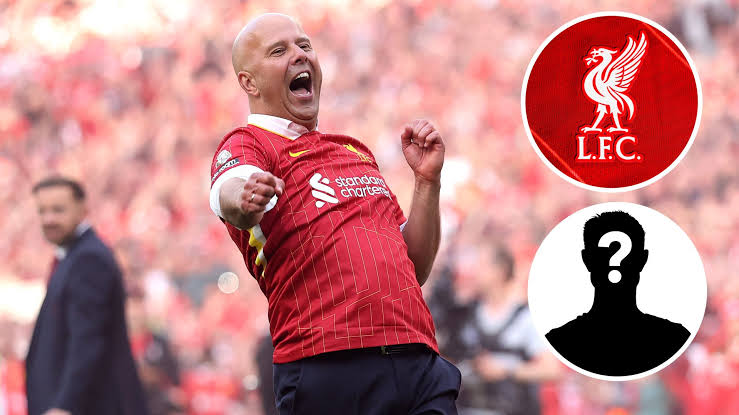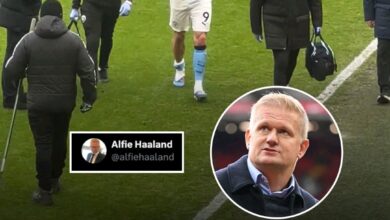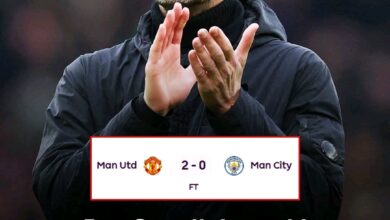James McConnell: From Sunderland Academy to Liverpool Stardom – A Comprehensive Analysis

The football world is buzzing with news that former Sunderland Academy product James McConnell is on the verge of securing a significant long-term contract extension at Liverpool Football Club. This development marks a pivotal moment in the career of the 20-year-old midfielder, whose journey from the Northeast of England to Merseyside represents one of the most promising young talent trajectories in recent years.
McConnell’s story begins at Sunderland’s Academy of Light, where he first honed his skills as a promising young footballer. However, his path took a decisive turn when he made the move to Liverpool at the Under-15 level, a transition that would prove instrumental in shaping his professional career. This early relocation demonstrates the kind of bold decision-making that often separates future stars from those who remain in the developmental wilderness.
The timing of McConnell’s potential contract extension couldn’t be more significant. Under the guidance of Dutch manager Arne Slot, Liverpool has been rebuilding and restructuring their approach to youth development and squad planning. Slot’s philosophy, which emphasizes technical proficiency, tactical intelligence, and mental resilience, appears perfectly aligned with McConnell’s natural attributes and playing style
Since taking over from Jurgen Klopp, Arne Slot has been methodical in his approach to squad development. His decision to block McConnell’s potential loan move in January following the young midfielder’s impressive Champions League performance against PSV Eindhoven speaks volumes about the manager’s long-term vision for the player. This wasn’t merely a knee-jerk reaction to a single good performance; it was a calculated decision based on comprehensive evaluation of the player’s potential and fit within Liverpool’s tactical framework.
Slot’s tactical system, which relies heavily on intelligent movement, quick passing combinations, and positional flexibility, seems tailor-made for a player of McConnell’s profile. The young midfielder’s ability to operate effectively at the base of midfield, combined with his composure under pressure and distribution skills, makes him an ideal candidate for the kind of possession-based football that Slot favors.
The fact that McConnell has already earned praise from both Klopp and Slot for his calm performances demonstrates his mental strength and adaptability. These are crucial qualities for any young player looking to establish themselves at one of Europe’s elite clubs, where the pressure and expectations are relentless
The interest from Championship clubs including Ipswich Town, West Bromwich Albion, and Derby County reflects McConnell’s growing reputation within English football circles. Each of these clubs represents a different type of opportunity for the young midfielder’s development.
Ipswich Town, fresh from their promotion to the Premier League and subsequent relegation, offers the appeal of a club with recent top-flight experience and ambitious plans for an immediate return. Their style of play, which emphasizes quick transitions and creative midfield play, could provide McConnell with valuable experience in a competitive environment where his technical skills would be highly valued.
West Bromwich Albion, with their rich history and traditional approach to developing young talent, represents another attractive option. The Baggies have historically been successful in nurturing young players and providing them with the platform to showcase their abilities. Their position as a established Championship club with Premier League aspirations could offer McConnell the perfect balance of competitive football and developmental opportunity.
Derby County, despite their recent financial difficulties and relegation struggles, remain an attractive proposition for young players due to their commitment to youth development and their willingness to give opportunities to promising talents. The Rams’ situation could provide McConnell with guaranteed first-team football and the chance to be a key player in their rebuilding efforts.
The interest from Bundesliga clubs adds an international dimension to McConnell’s options. German football’s reputation for tactical sophistication and youth development could provide the young midfielder with a completely different cultural and footballing experience. The Bundesliga’s emphasis on technical ability, pressing, and tactical intelligence aligns well with McConnell’s skill set and could accelerate his development in ways that might not be possible in English football.
Liverpool’s stance on not entertaining offers with option-to-buy clauses demonstrates their long-term commitment to McConnell’s development. This approach reflects the club’s sophisticated understanding of talent management and their confidence in the player’s potential. By maintaining control over his future while allowing him to gain valuable first-team experience elsewhere, Liverpool is implementing a model that has proven successful with other young talents.
The club’s youth development strategy under the new regime appears to be more nuanced and player-specific than in previous years. Rather than adopting a one-size-fits-all approach, Liverpool seems to be tailoring development paths based on individual player needs, market conditions, and long-term strategic objectives. McConnell’s situation exemplifies this approach, with the club balancing immediate development needs against long-term asset protection.
This strategic thinking extends beyond individual player management to encompass broader questions about squad planning, financial sustainability, and competitive positioning. By developing and retaining young talents like McConnell, Liverpool is building a foundation for sustained success while also creating valuable assets that could be leveraged in future transfer markets if necessary.
McConnell’s status as a regular for England’s Under-20 national team adds another layer to his developing profile. International recognition at youth levels has historically been a strong predictor of future success in professional football, and McConnell’s consistent selection for England duty demonstrates his standing among his peer group.
The England Under-20 setup has produced numerous players who have gone on to establish themselves at the highest levels of the game. The experience of competing against international opposition, adapting to different tactical systems, and handling the pressure of representing his country will serve McConnell well as he continues his development.
His international experience also provides valuable context for evaluating his potential loan destinations. Clubs will be aware that they would be acquiring a player who has already demonstrated his ability to perform at international level, even if only at youth categories. This recognition adds credibility to his profile and increases his attractiveness to potential loan destinations
From a technical standpoint, McConnell represents the modern midfielder archetype that has become increasingly valuable in contemporary football. His ability to operate effectively at the base of midfield requires a combination of technical proficiency, tactical intelligence, and physical resilience that not all young players possess.
His passing range and accuracy have been consistently highlighted by coaches and observers. The ability to switch play, find teammates in tight spaces, and maintain possession under pressure are fundamental skills for any midfielder aspiring to play at the highest level. McConnell’s demonstrated composure in these situations suggests a maturity that belies his young age.
Defensively, McConnell has shown an understanding of positioning and anticipation that indicates strong tactical awareness. His ability to read the game, intercept passes, and break up opposition attacks without relying solely on physicality demonstrates the kind of intelligence that modern football demands from defensive midfielders.
His Champions League appearance against PSV Eindhoven provided a glimpse of his potential at the highest level. The fact that this performance was significant enough to influence Slot’s decision regarding a potential loan move suggests that McConnell demonstrated not just technical ability, but also the mental strength to perform on football’s biggest stages
McConnell’s situation reflects broader trends in modern football’s approach to youth development. The increasing sophistication of academy systems, the growing importance of data analysis in player evaluation, and the evolving understanding of optimal development pathways have all contributed to more nuanced approaches to managing young talent.
The traditional model of youth development, which often relied on linear progression through age-group teams, has given way to more flexible and individualized approaches. McConnell’s journey from Sunderland to Liverpool at such a young age exemplifies this evolution, with clubs increasingly willing to invest in and relocate promising talents regardless of geographical considerations.
The financial implications of successful youth development have also become more significant. With transfer fees continuing to rise and Financial Fair Play regulations becoming more stringent, the ability to develop and retain young talents has become crucial for maintaining competitive squads while managing costs. McConnell represents potentially significant value for Liverpool, both as a future first-team contributor and as a valuable asset.
For Sunderland, McConnell’s success at Liverpool represents both validation of their academy system and a reminder of the challenges facing lower-tier clubs in retaining their best young talents. The Black Cats have historically been successful in developing young players, but the gravitational pull of elite clubs like Liverpool makes it increasingly difficult to retain promising talents through their entire development cycle.
Sunderland’s current situation under head coach Régis Le Bris provides interesting context for understanding the pathways available to young talents. The club’s recent pre-season activities, including matches against high-level opposition like Sporting Lisbon, demonstrate their commitment to providing competitive experiences for their players. However, the reality remains that clubs of Liverpool’s stature can offer opportunities and resources that are difficult for Championship and League One clubs to match.
Le Bris’s comments following the defeat to Sporting Lisbon reveal a manager who understands the importance of learning experiences and tactical development. His analysis of the team’s performance, particularly regarding defensive transitions and attacking creativity, shows the kind of detailed tactical thinking that modern football demands. This approach to development is similar to what McConnell would have experienced during his time at Sunderland’s academy.
The injury management of players like Wilson Isidor and Niall Huggins also demonstrates the careful approach that clubs must take with player development and fitness management. These considerations become even more crucial when dealing with young players whose bodies and games are still developing.
Looking ahead, McConnell’s career trajectory appears to be following a path that could lead to significant success. The combination of Liverpool’s backing, international recognition, and strong interest from competitive clubs suggests that he has the platform necessary for continued development.
The key factors that will determine his ultimate success include his ability to adapt to the physical and mental demands of senior football, his continued development of tactical understanding, and his capacity to maintain consistent performance levels over extended periods. The loan experience, wherever he ends up, will be crucial in providing answers to these questions.
The Championship, in particular, offers a unique testing ground for young players. Its combination of physicality, tactical variety, and competitive intensity provides challenges that are different from both youth football and top-level European competition. Success in the Championship has historically been a strong predictor of future success at higher levels.
James McConnell stands at a critical juncture in his career development. The potential long-term contract with Liverpool provides security and demonstrates the club’s faith in his potential. The upcoming loan move will provide the crucial bridge between youth football and senior competition that could determine whether he fulfills his considerable promise.
For Liverpool, McConnell represents both immediate squad depth and long-term strategic value. His development will be closely monitored as an indicator of the club’s broader youth development success under the new regime. For McConnell himself, the coming seasons will determine whether he can make the transition from promising prospect to established professional.
The interest from multiple clubs across different leagues demonstrates the high regard in which he is held within the football community. However, potential must ultimately be converted into performance, and McConnell’s true test is only beginning. His journey from Sunderland’s academy to Liverpool’s first-team plans illustrates both the opportunities and challenges facing young talents in modern football.
As the transfer window progresses and decisions are made about his immediate future, McConnell’s story will continue to unfold as a case study in modern talent development, strategic planning, and the pursuit of footballing excellence. The foundations are in place for success; now comes the crucial phase of building upon them.















